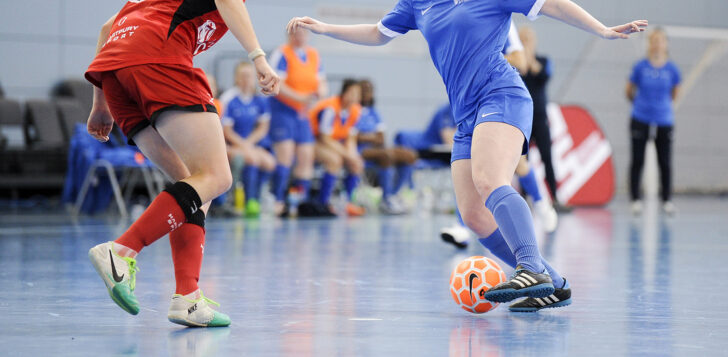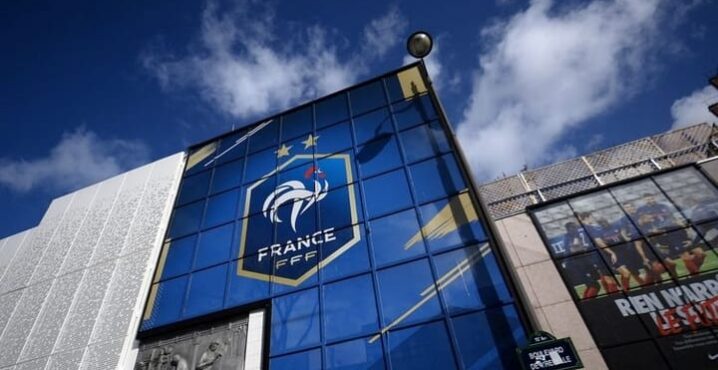Estimated reading time:12 minutes, 18 seconds
Challenges and Autonomy: Unveiling the Battles of Niche Sports against Established Governing Bodies while Pickleball Seeks Independence
In the realm of niche sports, the journeys of Futsal and Padel unfold against a backdrop of institutional challenges and limited support from established governing bodies. As Futsal grapples with the English Football Association’s (FA) reluctance to invest in international endeavours and Padel faces a dearth of support under the purview of the Lawn Tennis Association (LTA), Pickleball emerges as a beacon of autonomy, fighting to chart its own course within the sporting landscape, a decision Sport England will make in a forthcoming board meeting.
Main image source: British Universities and College Sport (BUCS)
Padel’s Integration into the LTA
The narrative of Padel’s integration into the LTA’s domain in 2014 echoes the struggles faced by Futsal within the FA. Despite promising prospects for growth, Padel’s development has been hampered by a lack of investment and strategic guidance from the LTA. Private initiatives have driven the expansion of Padel courts across the UK, underscoring the community’s disillusionment with the governing body’s tepid commitment to the sport’s advancement.
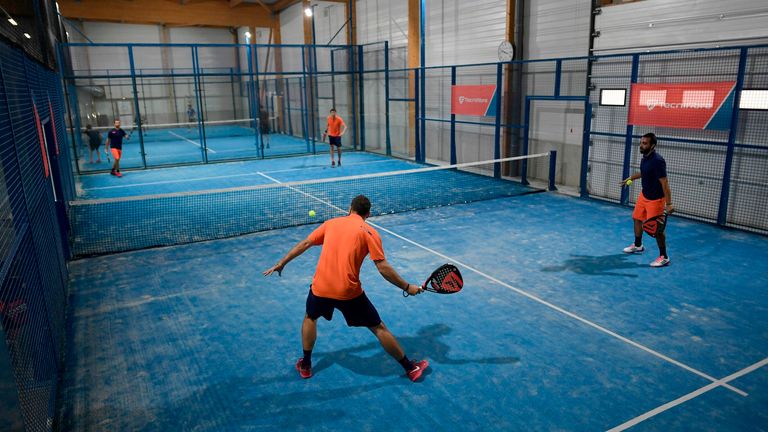
Source of the image: Sky Sports
Futsal’s Financial Struggles under the FA
Similarly, the FA’s decision to withhold financial support for their international Futsal programme mirrors the challenges encountered by Padel under the LTA’s auspices. While England Futsal strives for recognition on the global stage, the burden of self-funding places a considerable strain on its resources, highlighting the FA’s reluctance to invest in niche sports other than the traditional football domain. This revelation has cast a shadow over England Futsal’s aspirations, highlighting the stark reality of the financial hurdles it faces.
The absence of financial backing from the FA underscores the challenges inherent in developing a sustainable futsal programme. Without adequate funding, England Futsal is left scrambling to cobble together resources from alternative sources, risking the stability and longevity of its endeavours. England Futsal was set up in 2022, as a new independent venture, which would partner with The FA over an initial five-year period, with the aim of providing long-term stability and growth for Futsal in England. The new venture is led by experienced sports administrator Stephen Mitchell and sees England Futsal become their official delivery partner for the format.
England Futsal will deliver the grassroots development of Futsal, including coach education, referee development and mentoring, regional youth leagues, and the talent inclusion programme, to support Futsal participation for boys and girls. England Futsal also announced the launch of the England Futsal National Youth Cup for the 2023/24 season; this competition builds on the foundations built by The FA Pokémon Youth Cup in previous years.
The FA and its Futsal Committee will maintain overall responsibility for the governance of Futsal in England including sanctioning, discipline, and Futsal regulations. The Association agreed for England Futsal to set up and manage the Under 19 Men’s and Women’s national teams based on a two-season trial period. Though, the women’s U19 has yet to be launched and despite approving the launch a men’s and women’s senior teams, recent revelations from England Futsal paint a bleak picture of the FA’s reluctance to invest in the development of senior national futsal teams. Despite the FA’s mandate to oversee football in all its forms, its refusal to allocate financial resources for futsal raises serious questions about its commitment to fostering the growth of the sport.
By turning a blind eye to the needs of futsal, the FA undermines the efforts of dedicated individuals and organisations striving to elevate the game to new heights. The lack of funding not only hampers England Futsal’s ability to compete on the international stage but also sends a disheartening message to aspiring futsal players across the country.
The English FA, however, would contend this perspective by highlighting their support for Futsal development in England since 2009. They would likely point to significant milestones such as the launch of the first-ever FA National Futsal League (Although much like England Futsal, this was a separate company linked to people with FA roles), and a men’s national futsal team until 2020 (Now, responsible of England Futsal, thus the FA has slowly shifted responsibility for futsal outside their organisation, first the league – FA National Futsal League and FA National Futsal Series, and now the national teams among other activities – England Futsal).
Additionally, they could emphasise initiatives like the Fast Forward with Futsal strategy launched six years ago (although no longer being advanced), the decision to create the National Futsal Series (again a separate company) five years ago and helping to secure BT Sport as a broadcasting partner nearly three years ago (although how much involvement they had initially is debatable, it is known that they later were involved in saving the deal when BT Sports wanted to pull out after the first year. Whether the deal will continue after this season, which is the end of the 3 years, is still unknown.). Moreover, they could highlight the establishment of new Futsal regulations two years ago and the creation of England Futsal (a separate company).
The FA could argue that they have made considerable efforts to support and foster autonomy for Futsal as a sport and assert that they have provided platforms and opportunities for clubs to commercialise themselves. However, critics counter this by pointing out the lack of commercial and marketing support these platforms have received from the FA, placing the burden solely on the amateur clubs, which don’t have the resources or expertise to fully capitalise on these opportunities. Furthermore, while the FA, this year, has agreed to establish men’s and women’s teams to compete in international competitions, they have provided zero finances and zero resources to England Futsal for these endeavours. This contrasts starkly with the support provided by other associations in UEFA. Therefore, despite the FA’s claims of support, the lack of tangible assistance and resources raises questions about their commitment to fostering the growth and success of Futsal in England.
A striking contrast emerges when we examine the treatment of mainstream football, particularly the Women’s Super League (WSL). The English Football Association (FA) has not only overseen the development of the WSL but has also made significant investments to propel it to a point where private investors now express interest in its management and operation.
In stark contrast to the challenges faced by Futsal, the FA’s proactive involvement in the WSL has garnered widespread attention and interest, demonstrating the potential impact of dedicated support and investment from governing bodies. While the FA’s efforts in promoting women’s football underscore a commitment to inclusivity and growth within the sport, questions arise regarding the disparity in treatment between niche and mainstream sports within the FA’s purview.
The success of the WSL serves as a notable example of how strategic investment and support from governing bodies can elevate a sport to new heights, domestically and on the international stage, whilst also attracting private investors and fostering long-term sustainability.
After detailing the challenges faced by England Futsal and the criticisms levelled at the Football Association (FA) for their perceived lack of support, it’s essential to consider the FA’s perspective. A spokesperson for the FA, spoke with Futsal Focus, and highlighted their efforts to support England Futsal, stating: ‘In December 2022, we announced the launch of a new partnership with England Futsal, an independent venture with the aim of providing long-term stability and growth for Futsal in England. Since then, The FA has provided support for England Futsal to run Futsal CPD for coaches and referees as well as running a mentoring programme. The FA has also funded a National Youth Futsal Cup competition which will be taking place again during the 23/24 season.
The launch of England Futsal has also seen the U19s men’s team compete in the UEFA EUROs 2022, and FA approval and endorsement for them to enter the senior England Futsal Teams in upcoming UEFA and FIFA competitions, based on the programme being funded and delivered by England Futsal.
We look forward to continuing to work with England Futsal to support this format of the game.”
In analysing the statement provided by the Football Association (FA) regarding their support for England Futsal, it’s crucial to contextualise it within the broader narrative presented in the article. While the FA highlights their efforts to bolster Futsal development since the establishment of England Futsal as an independent venture, there remains a backdrop of historical reluctance towards significant investment in Futsal. This juxtaposition invites scrutiny into the disparity between the attention and resources dedicated to mainstream football, like the Women’s Super League (WSL), compared to niche disciplines like Futsal. Thus, the FA’s assertion of support for England Futsal should be considered within this larger framework of institutional challenges and limited backing for niche sports under established governing bodies.
Pickleball’s Pursuit of Autonomy
Amidst these struggles, Pickleball emerges as a symbol of independence and resilience, poised to carve its niche within the sporting landscape. With Pickleball England advocating for autonomy from established governing bodies, the sport’s enthusiasts envision a future untethered from the constraints faced by Futsal and Padel. The cautionary tale of Padel’s tribulations under the LTA serves as a stark reminder of the perils of relinquishing control to established authorities, fuelling Pickleball’s determination to chart its own destiny. However, it is important to state that the resistance futsal faces in England and across Great Britain, does not reflect other Associations under FIFA and its governing bodies around the world.
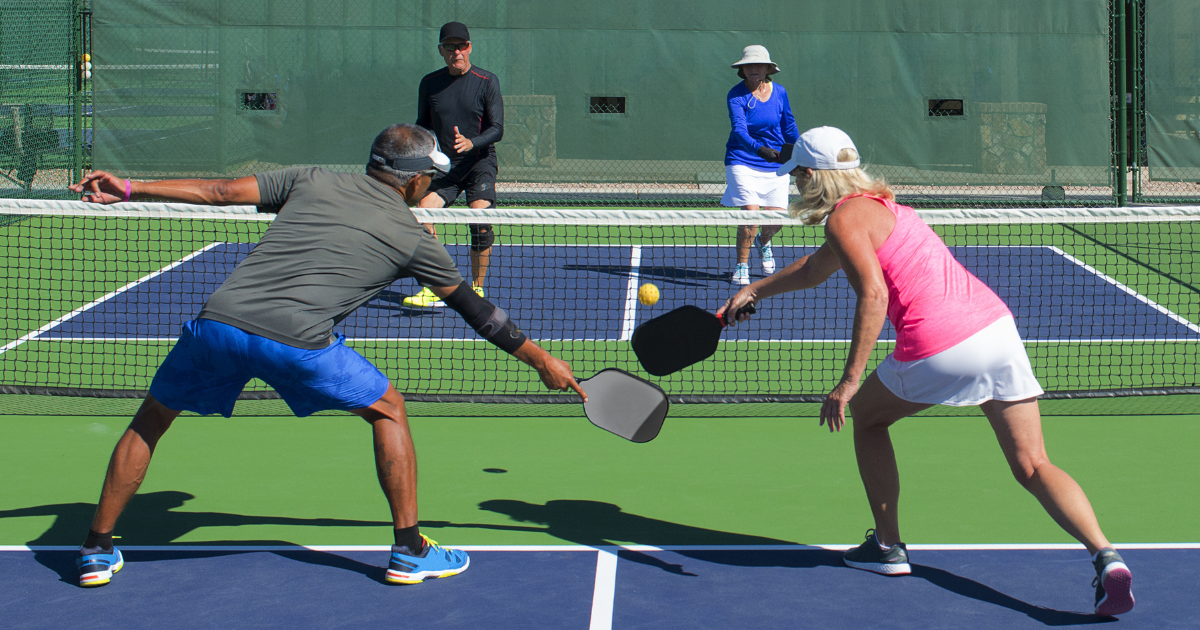
Source of the image: Pendle Leisure Trust
As Pickleball England navigates the complexities of governance and seeks to establish its autonomy, the lessons gleaned from Futsal and Padel’s struggles serve as guiding beacons. The pursuit of independence amidst institutional inertia demands unwavering resolve and strategic foresight. As niche sports continue to carve out their identities on the fringes of mainstream athletics, Pickleball’s quest for independence represents a testament to the enduring spirit of sporting innovation and autonomy. However, the current predicament of England Futsal underscores the challenges inherent when given independence and met with a lack of support from their governing body. Additionally, securing commercial backing for niche sports presents further hurdles.
With a forthcoming board meeting of Sport England to consider pickleball’s fate, the new breed of racket sports – which also include the related discipline of padel – are entering an intriguing few weeks.
The awkwardness stems from a simple question: who should run pickleball in this country? Should it be the Lawn Tennis Association, which has been administrating padel – with debatable results, according to many insiders – since 2019? Or should it be the band of enthusiastic volunteers who established Pickleball England in that same year?
This is the choice facing Sport England, which is expected to take another look at it in late March. The issue was referenced in the House of Commons, with Conservative MP Andrew Selous asking: “Can we recognise pickleball as a national sport?” and under-secretary of state Stuart Andrew replying: “Anything that gets people active can only be a good thing.”
According to James Chaudry, a three-time national champion and Pickleball England board member, this short exchange raised some important points.
“We met the LTA several times last year and their proposal didn’t recognise pickleball as its own sport,” Chaudry told Telegraph Sport. “They want it to be part of their ‘Tennis Opened Up’ strategy, aimed at younger and older players. Our contention is that pickleball deserves to be treated on its own, not as a feeder sport. It’s easier to pick up than tennis and doesn’t require the same court coverage. All of which makes it incredibly inclusive, and potentially beneficial to the Government’s Get Active strategy.” (Taken from the Telegraph newspaper – UK publisher)
In the context of the comparison between Pickleball and Futsal’s struggles for recognition, the quotes from James Chaudry and the perspective on Futsal’s treatment by the English FA shed light on a recurring theme: the tendency of established governing bodies to view niche sports through the lens of their existing frameworks rather than acknowledging them as standalone disciplines deserving of independent support.
Comparison and Conclusion
Chaudry’s remarks reveal the frustration felt by Pickleball enthusiasts as they seek recognition for their sport. The LTA’s inclination to integrate Pickleball into its “Tennis Opened Up” strategy reflects a common approach taken by governing bodies, where niche sports are often seen as supplementary to larger, more established ones. However, Chaudry’s contention that Pickleball should be treated as its own entity underscores the unique attributes and inclusive nature of the sport, which warrant distinct recognition and support.
Similarly, the perspective on Futsal’s treatment by the English FA mirrors this pattern of viewing niche sports as mere extensions of their mainstream counterparts. By regarding Futsal primarily as a development tool for football rather than as a sport in its own right, the FA demonstrates a lack of respect for Futsal’s distinct identity and potential. This narrow focus on Futsal’s utility within the football pathway neglects the broader spectrum of opportunities and benefits that a fully supported Futsal programme could offer, from grassroots to international levels.
Thus, the comparison between Pickleball’s struggle for recognition and Futsal’s treatment as a developmental tool highlights the systemic challenges faced by niche sports in garnering support and respect from established governing bodies.
For further reading, you can visit the original article on the Telegraph website here.
This link provides additional context and insights into the topics discussed in this article, particularly regarding Padel and Pickleball.
Author of the Interview
Stephen McGettigan was born in the Republic of Ireland but grew up in Belfast. He is the founder of Futsal Focus, a Football Industries MBA graduate from the University of Liverpool Management School, and he has worked in the Football and Futsal industries for 15 years.
Organ Donation
Futsal Focus is a supporter of Dáithí Mac Gabhann and his family’s campaign to raise awareness of Organ Donation. We encourage our readers to learn more about Organ Donation: https://www.organdonation.nhs.uk/
Futsal Focus
You can read more articles about domestic futsal by going to the top navigation bar or by clicking here
If you like this article and would like to keep updated on Futsal news, developments, etc then you can now follow Futsal Focus via Google News by following our page which will send you an alert as soon as we publish an article so please click here and follow us on Google.
You can also keep updated on Futsal news, developments, etc then please submit your email below in the Subscribe to Futsal Focus option.
Follow Futsal Focus by clicking on Facebook, Twitter, or Instagram or on the social media buttons on the website.








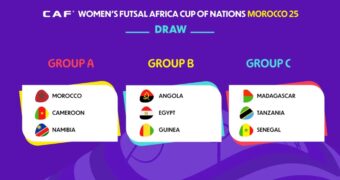
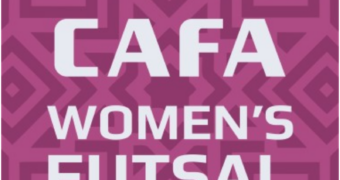




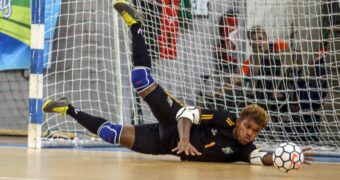
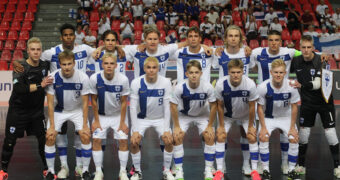
![Validate my RSS feed [Valid RSS]](https://www.futsalfocus.net/wp-content/uploads/2020/01/valid-rss-rogers.png)

